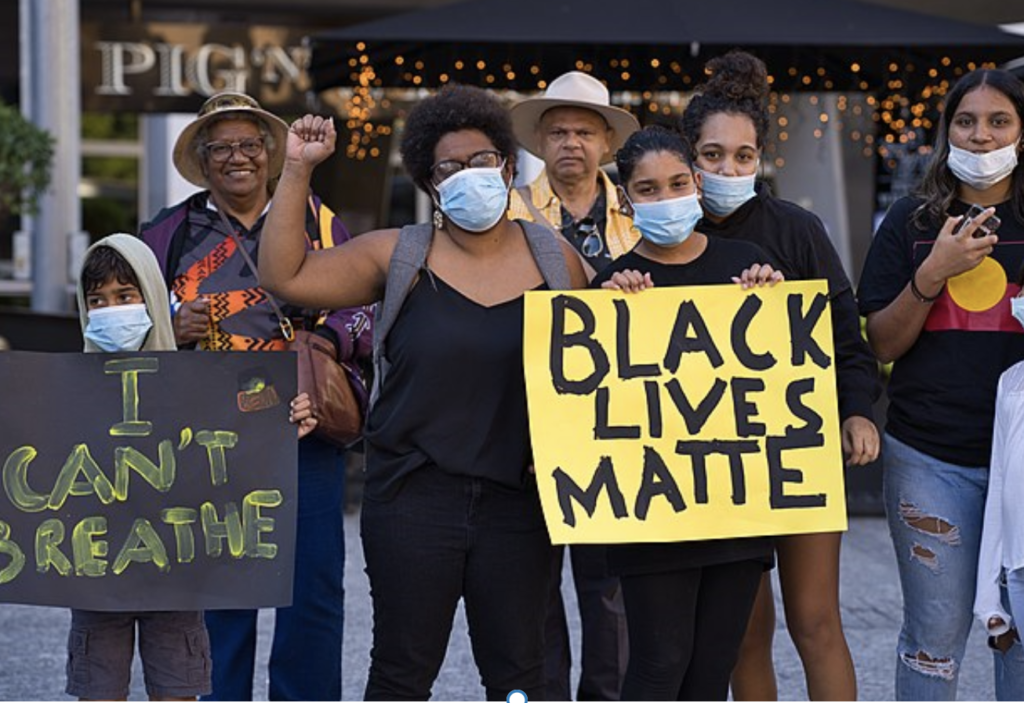How White Fragility Keeps Anti-Black Racism Alive in Arab Society

By: Raisa Sami / Arab America Contributing Writer
Arabic television shows frequently featured lighter-skinned actors in blackface, sparking controversy over negative portrayals of Black people in recent years. The dehumanization of Black people, which includes stereotypes of mental weakness, moral impotence, excessive sexual arousal, foolishness, and laziness, is the root cause of this anti-Black racism. This disparaging description originates from medieval Arab discourse, which was impacted by Greek and Roman theories, biblical stories, and pre-Islamic conflicts. Black people revolted against oppression and injustices, sparking one of the biggest slave uprisings in history. Through the slave trade, racism was further institutionalized in later periods, such as Ottoman and European colonization, which fueled ideas of Black inferiority. Anti-Black racism in Arab society still exists in modern times despite growing criticism, in part because white fragility contributes to this.
White Fragility in the Arab World
The term “white fragility” describes the uncomfortable and defensive responses that white people have when talking about racism and race, which obstructs meaningful conversation and upholds injustice. Aspects of white fragility connect with the complex dynamics of anti-Black racism in the Arab world, even though they do not all translate well into the contemporary Arab cultural scene. White fragility feeds into anti-Black prejudice, maintaining power disparities and anti-Black attitudes toward Black people. It is essential to discuss the subtleties and fragility of whiteness to dismantle racial hierarchies within Arab societies.
Example of White Fragility
Arabs frequently react to conversations about anti-Black racism with white fragility. This includes fury, rejection, avoidance, discussion, retreat, and denial. Citing one’s anti-racist positions, linking racism to moral judgment, claiming inclusivity and non-racist viewpoints by religion, or appealing to nationalist feelings that transcend race are some possible responses. Treating everyone equally, putting people first, appreciating justice, having close friends who are Black, and opposing racism are a few examples of such reactions. Problematic ideas and beliefs like individualism, objectivity, color blindness, meritocracy, the good/bad binary, and moral judgment influence these answers. By undermining efforts to address systemic racism and preventing productive dialogue, this defensive posture adds to the continuation of racial inequality. These answers highlight the typical responses among lighter-skinned Arabs when their racial privilege or involvement in systemic racism is called into question.
Understanding White Arab Fragility
The inclusive message of Islam can be utilized to combat racism against Black people in Arab societies. Bahraini cultural critic Nader Kadhem draws attention to the idea of “self-deception” or “social hypocrisy,” in which people who have internalized racist beliefs avoid responsibility by posing as accepting and tolerant. “White” Arabs may feel uneasy if racism against Black people in Arab societies is acknowledged, which would contradict this belief. It’s also critical to publicly acknowledge and dispel stereotypes surrounding interracial partnerships. In the Arab world, marriages between Black and White Arabs are less common, and even in cases where there is a Black family member, it is rarely acknowledged. Arab nationalist agendas have consistently masked the diversity within their societies, encouraging a type of color blindness that ignores the historical truths of slavery and the complexities of racism in Arab communities.
Talking about race and racism in uncomfortable ways can help people understand one another better. White fragility is a powerful mechanism that keeps privilege and racial inequality intact by impeding attempts to address systemic problems and meaningfully discuss racism. To confront structural problems and support Black liberation movements, Arabs must band together.
Check out our Blog here!









